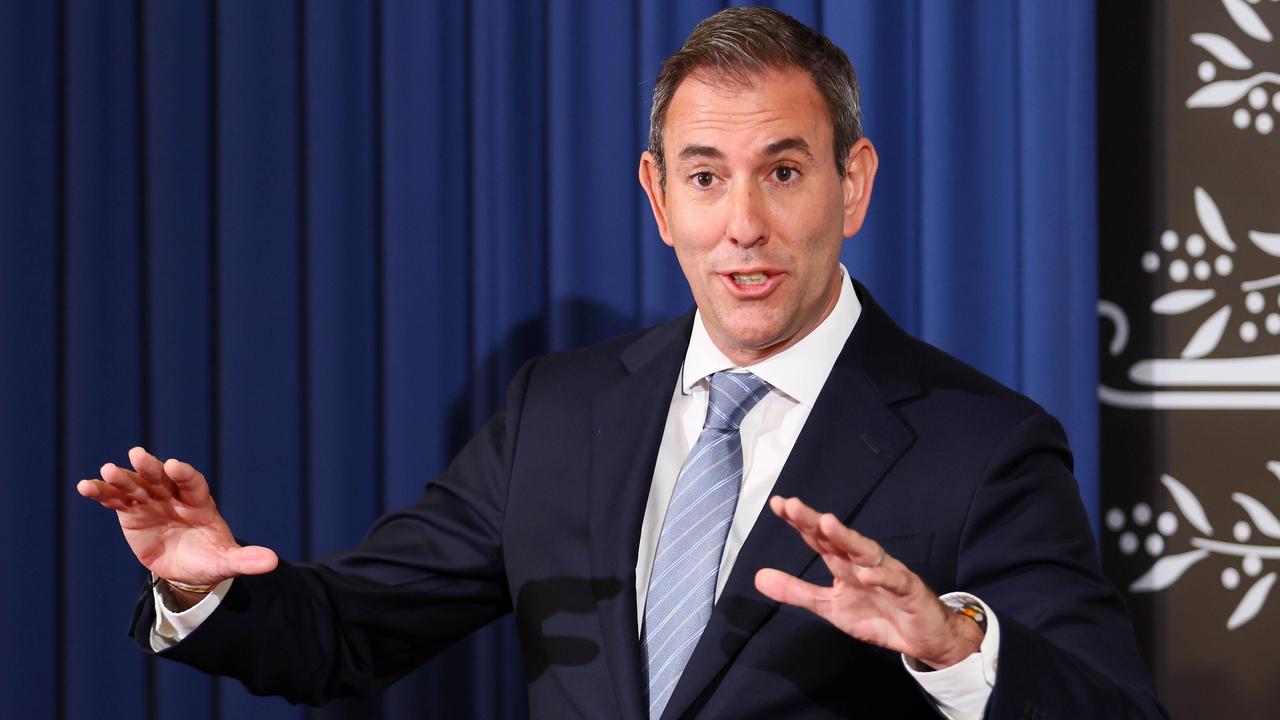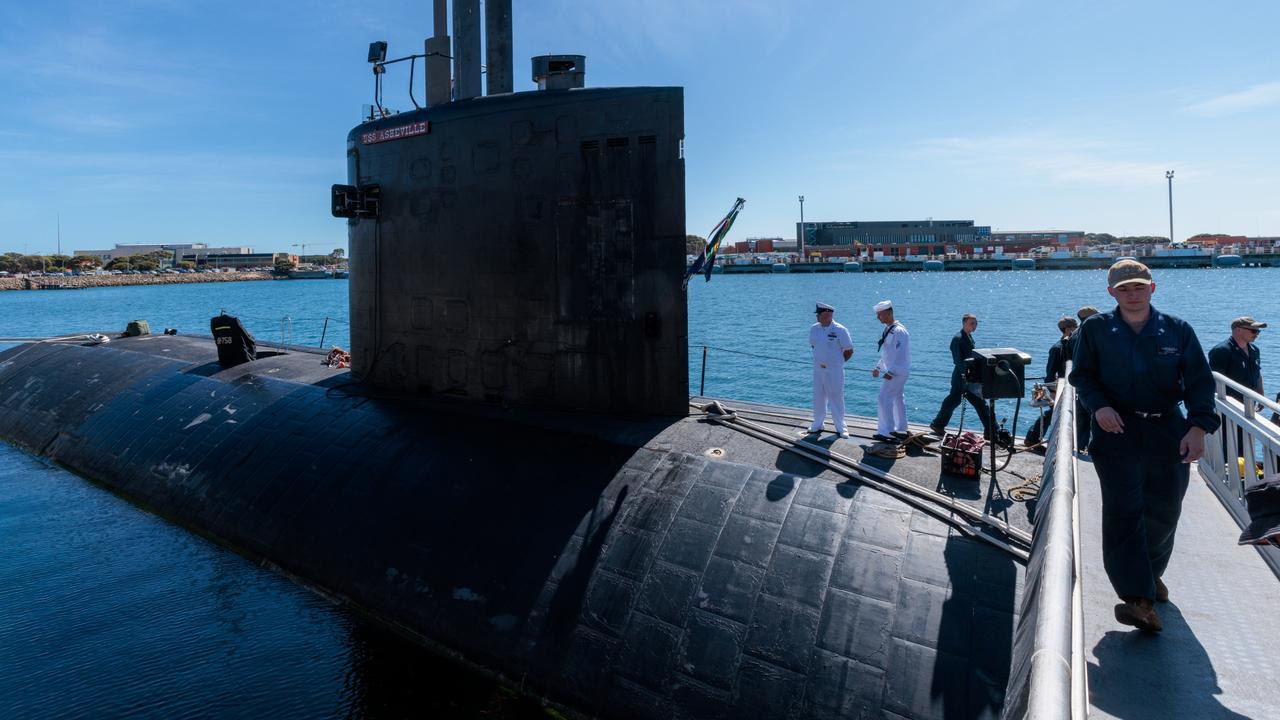Federal Budget 2017: Turnbull Government aims to appeal to middle-class Australia
THE Turnbull Government, driven by bad polls, moved towards the middle ground with its Budget this week in an attempt to appeal to a broader church of voters.
Federal Budget
Don't miss out on the headlines from Federal Budget. Followed categories will be added to My News.
JIMMY Cairns would have loved it!,’’ a long retired Queensland Labor MP said after rifling through the 2017 Federal Budget, marvelling at a document he sees as an echo of ’70s style Labor Left economics.
Jim Cairns, the Whitlam government treasurer of the early 1970s who once delivered free seminars on Marxist and socialist history to working-class Australians, would no doubt give a delighted nod to a high-taxing, big-spending Budget which fully funds the National Disability Insurance Scheme to the tune of $55 billion, milks the banks of $6 billion over the next four years and increases a tax to fund our health system by half a per cent.
Even the Inland Rail could be viewed as an old Soviet-style nation-building project Cairns might have admired – as if some Central Committee had pinpointed our transport deficiencies and green-lighted $8 billion of (borrowed) public expenditure on a bold, visionary project spanning three states.

It might be churlish to mention the date, but it was only last April 1 that Prime Minister Malcolm Turnbull was evoking the memory of Liberal Party founder Bob Menzies, rallying his tribe by insisting that at the very essence of Conservatism is that magnificent word “enterprise” – not so much the noun as the verb.
“Enterprise,” Turnbull told the State Liberal Council meeting in Melbourne, was at the core of Liberal values and gave the party a clarity distinct from Labor.
And enterprise, the PM earnestly counselled the party faithful, manifested itself in the endeavours of Australia’s businessmen and women, “above all small businesses, because they’re the most enterprising, the most ready to invest, the most ready to innovate’’.
It was a well received speech and, clearly, no April Fools’ Day joke, but with the wisdom of hindsight it does take on an ever-so-slight inflection of irony.
Wednesday morning newspapers caricatured Turnbull and his Treasurer Scott Morrison not as aspirational entrepreneurs but as two distinctly working-class and, presumably, Labor-voting, punters.
The Herald Sun in Melbourne depicted Morrison slurping from what looked suspiciously like a VB can labelled “Labor Lite”, his arms festooned with tatts, one suggesting Joe Hockey’s unhappy stint as the national bookkeeper was now officially deceased – “RIP Budget 2014”.
Opposition Leader Bill Shorten may have been left floundering by the audacious move to “out Labor Labor’’ but by Thursday night he had a finely crafted line to throw back across the Chamber.
“The great irony of this Budget is that while it doesn’t measure up to our values, it doesn’t keep faith with Coalition values either.’’

Liberal patriarch John Howard readily conceded the bank levy made him “uneasy”, but in the strange manner of the shifting sands of politics, 2000km away a former federal Labor MP, almost of the same political vintage as Howard, was giving the Budget an approving nod. Brian Courtice, who held the federal seat of Hinkler based around Bundaberg for two terms until 1993, and who made the “Jimmy Cairns’’ observation, said the Budget had echoes of “Labor Left”, but it was a Budget he could happily live with if he was still in the Australian Labor Party.
He concedes former Labor prime minister Paul Keating would be concerned about the deficit rising, as former Liberal Treasurer Peter Costello is.
But in Courtice’s eyes, in an age of wage stagnation and growing unemployment, the Budget will appear largely benevolent to working men and women who see energy being injected into the economy, and a sense of fair play being displayed by a Turnbull Government listening to their grievances.
“Things like fully funding of the NDIS are good for Australia because that money will be spent here, not overseas, and you look at the Inland Rail – it’s one of those great nation-building projects which Australians traditionally love,’’ Courtice said.
“They should use steel made in Australia for that project, which will create thousands of jobs.
“And slugging the banks with a levy is going to be supported by most people because every time the average person goes into a bank they see fewer and fewer staff employed, and they read about bigger and bigger profits being made, and they think ‘it’s about time the banks paid their share’.”
Even so, for a Liberal Government to slug the banks is extraordinary in Courtice’s eyes, as out-of-context as seeing (Adelaide Liberal MP) Christopher Pyne at a CFMEU rally.
“In my time the Coalition were apologists to the big end of town, butlers to the rich.’’
Senior political lecturer at Griffith University, Dr Paul Williams, sees the Budget more in terms of “Labor Lite’’ rather than “Labor Left’’.
But he suspects if you were to dig deep into the genesis of the document you would find not so much economic rigour as the “things to do list’’ drawn up by the Coalition after the 2016 Federal Election.
The Budget blatantly firms up support in Coalition electoral soft spots such as Western Australia where, in the 2016 election, the vote splintered all over the place into minor parties such as the Shooters and One Nation but left the Coalition more battered and bruised than Labor.
WA has been handed a $1.6 billion infrastructure spend which will go into road and rail and give the economy struggling with the mining downturn a shot in the arm, while the $226 million GST top-up will keep its GST share at 2014-15 levels.
Even the cherished Perth Freight Link may yet survive after a commitment for further funding for any WA government which proceeds with the project.
Western Sydney got Badgerys Creek Airport, which should help keep the nation’s most powerful electoral precinct on side for a while.
And Labor got a black eye with the banks levy.
Williams sees that $6.2 billion whack as designed partly as a sop to One Nation, which he believes may have gone off the boil a little after the WA state election.
But, more importantly, it was a piece of weaponry deliberately crafted to take large tracts of Labor territory – a fact almost conceded by Labor, which won’t oppose it.
Provided the bank levy doesn’t translate into an interest rate hike, the banks’ expected PR blitz in retaliation won’t resonate too heavily among ordinary Australians who see them earning record profits.
As for the increase in the Medicare levy to help fund the NDIS, “that could have been better sold”.
“This started out as one per cent levy in the Hawke Government in the ’80s and has now reached 2.5 per cent after the half per cent hike in the Budget,’’ Williams says.
“But rising health costs are now just part of our lives and this will inevitably go up to 3, or 3.5 per cent in the decades ahead.”
The Budget, Williams believes, was probably a political necessity from the Coalition’s perspective as it attempts to survive by moving into the middle ground and holding the line after a series of horror polls under Turnbull.
Williams notes the Snowy Mountain phase two energy scheme, announced by Turnbull earlier this year, produced a marked improvement in polling – a fact which may have helped put the Melbourne to Brisbane Inland Rail more firmly on the Coalition radar.
“Were they to hold an election in 33 days from Tuesday’s Budget, I don’t think they could win it, but this Budget has definitely given them breathing space.’’
Courtice, in retirement, spends his days on his farm outside Bundaberg, having lunch at leagues clubs, talking with farmers in sheds on sugar cane properties and drinking in pubs where he mixed with the ordinary working people he grew up with.
He is closely enough connected with the nuances and internal rhythms of working Australia to have accurately predicted the resurrection of One Nation in the 2016 election, and he sees this Budget as a working-class winner.
But that is predicated on the notion that Turnbull can sell it.
Both the PM and Morrison looked slightly awkward as they began their first Budget pitch, far too obviously trying to highlight that key word they hoped would come to define the wider perception of the Budget “fairness”.
If an already jaded electorate decides it’s just another magician’s trick, they will turn their backs, Courtice says.
“If they just shrug their shoulders and say, ‘well, that was just a blatant attempt to buy my vote’, it’s all over for the Coalition.”
Originally published as Federal Budget 2017: Turnbull Government aims to appeal to middle-class Australia



